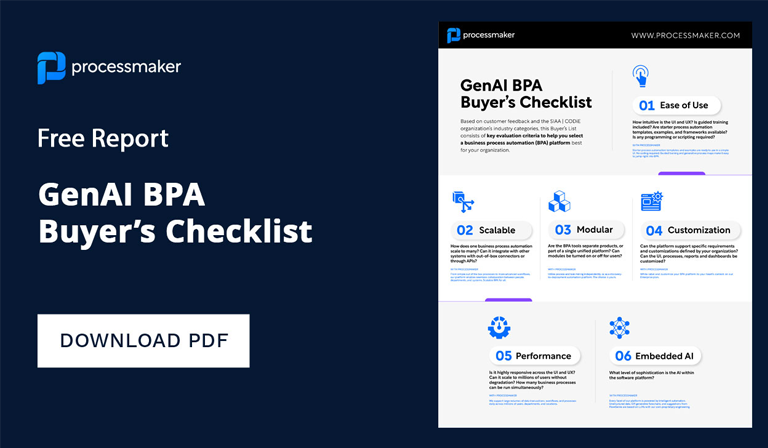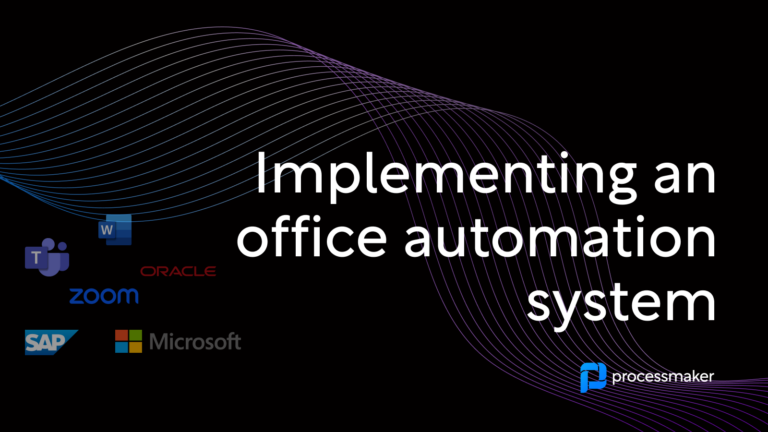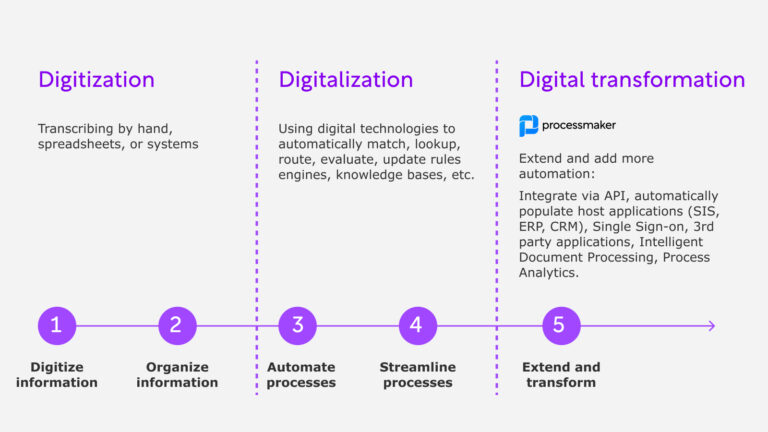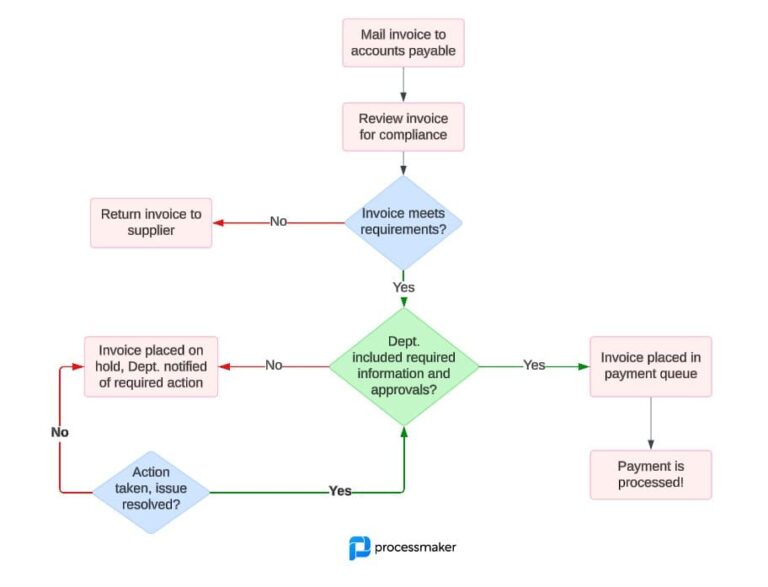Information in pharmaceuticals is often siloed off and contained in individual sectors. When information is siloed, data gets lost or changed as it travels between divisions. Manual transfers onto paper or electronically via software create opportunities for human error. Using different processes and documents in each sector promotes siloed information. It also causes compliance issues when information is not transparent between sectors. This contributes to the burden of meeting compliance regulations, which is estimated to be 35 percent of the total cost of clinical trials. Consistently meeting compliance regulations on the first try can lower the cost of research and speed up a drug’s time to market. To do this, drug developers are shifting to more systematic, data-driven strategies to improve quality outcomes by eliminating compliance issues in their pharmaceutical processes.
Process automation has helped pharmaceutical companies break down information silos and manage databases containing information about healthcare professionals. BPM software integrates the different types of software used across divisions so that pharmaceutical processes flow easily across divisions. Eliminating the barriers between divisions allows data to flow freely without being subject to unauthorized changes or human error. Bridge together processes throughout different sectors to build compliance checks in to your workflows. Read on to learn how automating IT Processes and HCP (Healthcare Provider) Database Management can help your enterprise meet compliance standards to bring down the cost of drug development.
IT Processes
When processes span multiple divisions and types of software, information and documents are hard to track. Data silos also act as a barrier to the exchange of information across the company during manual transfer between systems. As tasks go from one part of the company to another data is lost and bottlenecks occur. Paperwork sits forgotten in inbox trays and errors interfere with creating legible audit trails, which delays processes. Processes become hard to audit for inspection by regulatory bodies. This can lead to big compliance issues and headaches for your company.
The traditional solution to these problems is to create new software solutions for every data transfer between systems from scratch. Not only does developing home-grown solutions take your IT department away from other projects, it reinforces existing data silos in your company. Solving individual problems one at a time limits the scope of IT solutions and filters time away from improving existing processes. This is where using BPM software to bridge the gap between systems and create streamlined workflows comes into play.
The BPM Solution
Connect BPM software to internal applications to automate information transfers and manage processes from one central location. Users can complete tasks faster when crossing from one software to another. BPM software can send reminders or reassign the task to another user. This helps ensure tasks get done on time and eliminates bottlenecks. Standardize processes and forms across departments to create a digital paper trail as a case passes between tasks. Standardized processes also promote collaboration and transparency across departments so that everyone is on the same page when it comes to compliance.
Using BPM software to bridge systems allows your IT department to focus on improving existing solutions. BPM platforms are simple enough that business professionals with a non-technical background can design processes and automate tasks without coding skills. Not only does this make traditional, home-grown solutions defunct, but your IT team also has time to take on an increased number of projects. Trained business professionals manage process optimization while increasing the output of the IT department– a win-win situation.
Managing Healthcare Professional Information
One successful example of integration between BPM software and an external application is HCP (Healthcare Provider) database management. Without BPM software, you have to make individual calls to hundreds, sometimes thousands, of HCPs to audit information. It is also necessary to call medical licensing authorities to confirm the credentials given by each HCP. When filling out paperwork, it is often necessary to go between an electronic or paper form and the database to search for and enter information when contracting HCPs. Using information from a manually updated database can be time-consuming and risky. In the time it takes to update and verify information in the database, critical details may change.
The Pharma BPM Solution
To access pre-verified and current information in your business processes, connect BPM software to an external HCP database such as MedPro. MedPro and other external HCP database providers evaluate HCP and medical license information with both the individual and their local licensing authority. You no longer need to maintain your own database, freeing up time and money for other projects. They also evaluate the credentials of each HCP against current regulations set by the FDA, DEA or other authorities. This protects your company from the risk of contracting HCPs with bad records. You can also search the HCP directory directly from electronic forms in the BPM platform. BPM software auto-fills the results into the corresponding fields so you do not need to type in information manually. It makes the entire process of contracting HCPs for any purpose much more convenient and efficient.
BPM software also allows you to keep track of HCPs throughout the life cycle of clinical trials. Automate engagement justification, contracting and proof of performance processes to create a documented history for each HCP contracted. This helps you to create audit trails and ensure compliance at every step. You can easily edit processes and forms according to changing regulations, so you know you are always up to date.
With BPM software, you can make meeting compliance regulations automatic and cut the costs associated with avoidable violations. Read more about using BPM software in the healthcare sector in ProcessMaker’s white papers.





